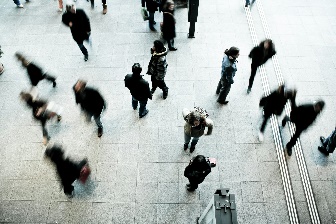Associate Professor of Privacy and Technology at Radboud University, Jaap-Henk Hoepman, warns against surveillance in the public sector. "If you know you are being watched everywhere, you are going to curtail your behavior in order not to be marked as a problem case," Hoepman said in a recent interview in the Volkskrant.

The newspaper published an article about the surveillance cameras with artificial intelligence deployed during the Paris Olympics. Although the games have ended, the cameras will remain in the French capital until March 31, 2025. Legislation allowing the deployment of the "augmented" security cameras will remain in place until that date.
"Privacy ensures that you are not immediately called to account for having outlandish ideas or thoughts," Hoepman argues. According to him, such freedom is essential for creativity in a society. Moreover, normative algorithms can hit people who fall outside the normal framework harder. "If artificial intelligence determines what is deviant, that software also determines what is the norm. What deviates from that is bad."
The normalization of surveillance also worries the head professor: "There is a permanent urge to make things even more secure because the technological possibilities are there. The result is an increasingly stifling society, where the government can enforce ever more strictly and easily."

